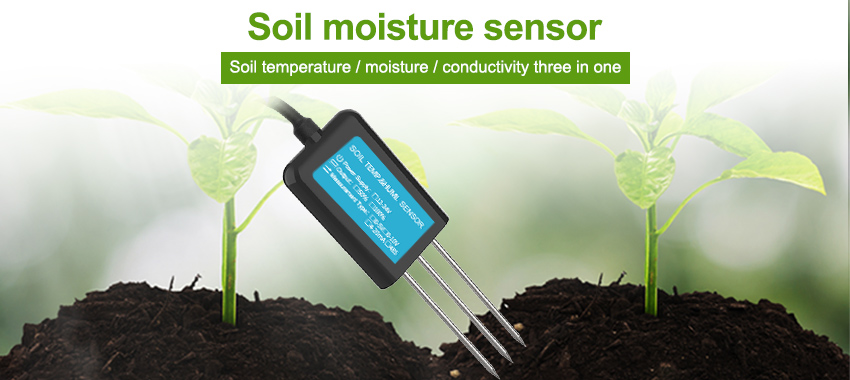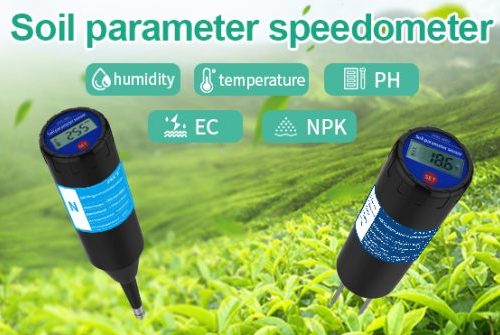Understand the soil humidity sensor
The soil humidity sensor adopts the international new generation FDR measurement method, which can reach an accuracy of less than 3%; the electromagnetic non-contact measurement method, the soil moisture sensor will not drift with time, which greatly enhances the stability of the product and extends the service life.

In modern agriculture, the efficient use of water is crucial for maximizing crop yield and minimizing resource waste. One essential tool that facilitates this process is the soil humidity sensor. This device plays a significant role in monitoring and managing soil moisture levels, ultimately optimizing irrigation practices. In this article, we will explore the importance, benefits, and applications of soil humidity sensors in agriculture.
Benefits of Soil Humidity Sensors:
Soil humidity sensors offer numerous advantages that contribute to agricultural productivity and sustainability. Firstly, these sensors provide real-time data on soil moisture content, enabling farmers to make informed decisions about irrigation. By avoiding overwatering or underwatering, farmers can prevent water wastage and reduce irrigation costs. Secondly, maintaining optimal soil moisture levels promotes healthier plant growth, leading to improved crop quality and higher yields. Additionally, these sensors aid in preventing soil erosion and nutrient leaching by ensuring the proper distribution of water within the soil profile.
Applications of Soil Humidity Sensors:
Irrigation Management:
One of the primary applications of soil humidity sensors is in irrigation management. These sensors are strategically placed in the soil to measure moisture levels at different depths. By continuously monitoring soil humidity, farmers can determine when and how much water should be applied. This precision irrigation approach optimizes water usage, minimizes water stress on crops, and enhances overall water efficiency.
Crop Monitoring and Yield Prediction:
Soil humidity sensors also assist in crop monitoring and yield prediction. By tracking moisture levels, farmers can analyze plant-water relationships and identify potential stress conditions. Early detection of water deficiencies or excesses allows farmers to take timely action, such as adjusting irrigation schedules or implementing supplemental watering strategies. Furthermore, this data can be combined with other environmental factors to develop predictive models for crop yield estimation.
Research and Development:
Soil humidity sensors play a vital role in agricultural research and development. Scientists and agronomists utilize these sensors to study plant-water dynamics, investigate irrigation techniques, and develop innovative water management strategies. The data collected from these sensors serves as a valuable resource for improving agricultural practices, enhancing sustainability, and addressing the challenges posed by climate change.
Conclusion:
The soil humidity sensor is an indispensable tool for modern agriculture. Its ability to measure and monitor soil moisture content empowers farmers to make informed decisions regarding irrigation management, crop monitoring, and yield prediction. By optimizing water usage and promoting healthier plant growth, these sensors contribute to sustainable farming practices while maximizing productivity. As technology continues to advance, it is expected that soil humidity sensors will play an increasingly pivotal role in achieving efficient and responsible water management in agriculture.
